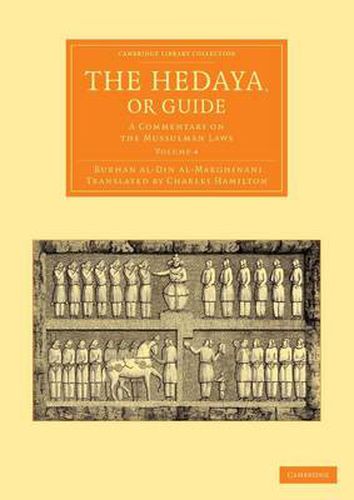Readings Newsletter
Become a Readings Member to make your shopping experience even easier.
Sign in or sign up for free!
You’re not far away from qualifying for FREE standard shipping within Australia
You’ve qualified for FREE standard shipping within Australia
The cart is loading…






Composed in the twelfth century by the leading Muslim jurist Burhan al-Din al-Marghinani (1135-97), the original Arabic al-Hidayah remains a central text of Islamic personal law. This English translation, from a Persian version of the work, was prepared by the orientalist Charles Hamilton (c.1752-92) for the East India Company in 1791. Although since superseded, it remains a fascinating document in the history of colonial jurisprudence. The legal system was central to the entrenchment of British rule in India, providing the framework for active control of civil administration and the courts. Translations of Islamic texts were intended to remove the language barrier for colonial officials, and blurred British and native law for the first time. Volume 4 contains sections on the partition of property, the eating of meat, sacrifice, abominations, the cultivation of wasteland, prohibited drinks, hunting, pawning, crimes against the person, fines, wills, and hermaphrodites.
$9.00 standard shipping within Australia
FREE standard shipping within Australia for orders over $100.00
Express & International shipping calculated at checkout
Composed in the twelfth century by the leading Muslim jurist Burhan al-Din al-Marghinani (1135-97), the original Arabic al-Hidayah remains a central text of Islamic personal law. This English translation, from a Persian version of the work, was prepared by the orientalist Charles Hamilton (c.1752-92) for the East India Company in 1791. Although since superseded, it remains a fascinating document in the history of colonial jurisprudence. The legal system was central to the entrenchment of British rule in India, providing the framework for active control of civil administration and the courts. Translations of Islamic texts were intended to remove the language barrier for colonial officials, and blurred British and native law for the first time. Volume 4 contains sections on the partition of property, the eating of meat, sacrifice, abominations, the cultivation of wasteland, prohibited drinks, hunting, pawning, crimes against the person, fines, wills, and hermaphrodites.